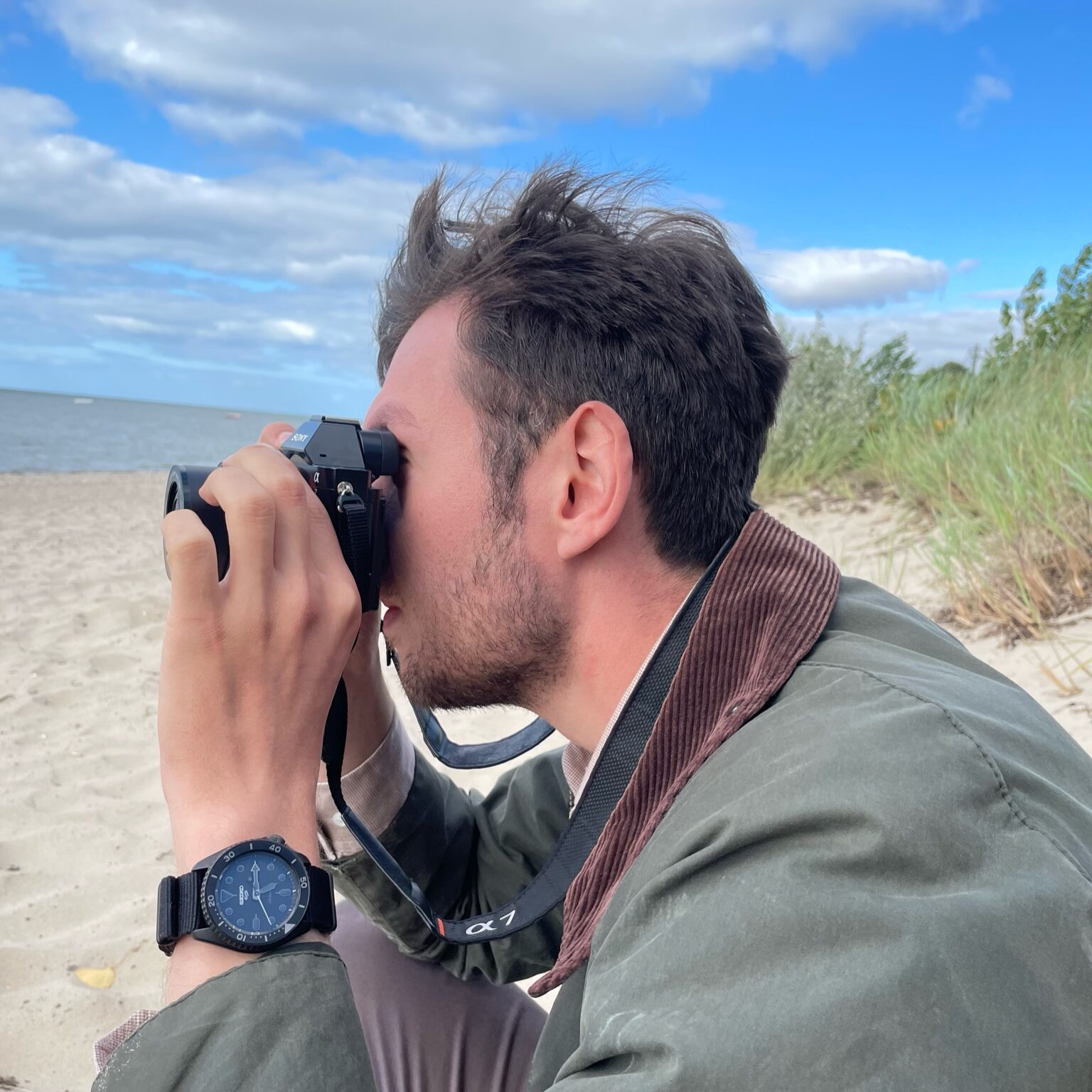
In our imagination, nomads enjoy the freedom and independence that perhaps some inwardly long for. We live in a complex world where we can increasingly grasp and demonstrate how actions and things interact. For example, we can calculate CO2 emissions per capita. Climate models can be created. There are global supply chains, production chains, and delivery chains. Who really knows exactly where their apple comes from? The times when one plucks it from the tree oneself have become rare. For a few cents, we can buy one anywhere in Europe. With all the advantages and disadvantages. Depending on one’s lifestyle, the complexity of the environment and the associated dependencies can also vary.
On one side, we might find Diogenes of Sinope the ancient Greek philosopher. He is said to have lived in a barrel in Athens and discarded his only bowl after seeing a child drinking with his hands. When Alexander the Great came to him and asked what he could do for him, Diogenes is said to have replied, “Just get out of my sunlight.”
Alexander was reportedly very impressed by this. It took a lot of pride and greatness to disregard him like that. That’s what he admired. When his companions laughed and mocked as they left, he reportedly said:
“Truly, if I were not Alexander, then I would want to be Diogenes!”
“It is the privilege of the gods to want nothing, and of godlike humans, to want little.”
Diogenes
This feeling of not needing or wanting anything may be the beginning and also the prerequisite for inner peace and contentment. Was this what impressed Alexander so much?
Diogenes of Sinope: Minimalism and Defying Conventions
Diogenes eschewed material possessions, offers a powerful lesson in minimalism and nonconformity. His rejection of societal norms and material wealth was not merely an act of rebellion but a deliberate choice to prioritize inner freedom over external trappings. Here’s what we can learn from his philosophy:
- Simplify Your Life: Diogenes demonstrated that true wealth lies not in abundance but in simplicity. By decluttering our lives — both physically and mentally — and focusing on what truly matters, we can free ourselves from the burden of excess.
- Challenge Conventional Wisdom: Diogenes’ fearless questioning of societal norms reminds us to think critically and challenge the status quo. By daring to question established beliefs and norms, we open ourselves up to new perspectives and possibilities.
- Cultivate Self-Sufficiency: Living in a barrel may seem extreme, but Diogenes’ self-reliance teaches us the value of cultivating our own abilities and resources. By honing practical skills and relying less on external dependencies, we can become more self-sufficient and resilient.
Nomadic Lifestyle: Freedom and Adaptability
Nomads, with their transient way of life and close connection to nature, offer a different yet equally compelling perspective on independence. Here’s what we can learn from them:
- Embrace Flexibility: Nomads thrive in environments of constant change, adapting seamlessly to new landscapes and challenges. By embracing flexibility and cultivating an adaptive mindset, we can navigate life’s twists and turns with greater ease.
- Value Experiences Over Possessions: Nomadic cultures often prioritize experiences and relationships over material possessions. By shifting our focus from accumulating stuff to savoring experiences and fostering meaningful connections, we can enrich our lives in profound ways.
- Connect with Nature: Nomads have a deep reverence for the natural world, seeing themselves as stewards of the land. By reconnecting with nature and adopting sustainable practices, we can foster a sense of harmony with the environment while reducing our ecological footprint.
Don’t live in a barrel
We don’t necessarily have to live in a barrel for this. It might be enough if we become aware of what we carry with us and to what we feel obligated. It could be the mortgage on our house. It could also be the endlessly long list of apps, newsletters, and subscriptions that regularly demand our attention. Imagine moving to a different apartment or country. Imagine the effort. All those dreams, the time, the unfinished projects. Now, imagine Diogenes on the other side, just setting off.
The sentence is grammatically correct, but it might sound a bit awkward. You could improve it by saying:
Everyone will have their own level of dependency in which they feel comfortable. But personally, I don’t know anyone who would say they mind if their life were a bit simpler, allowing more time and space for the important things. Keyword: Simplification.
Simplifying Our Digital and Living Environment:
- Digital Decluttering: Regularly review and delete unused apps, unsubscribe from newsletters and subscriptions that no longer serve us, and organize digital files and emails into manageable folders.
- Mindful Consumption: Be intentional about what digital content we consume. Limit screen time, set boundaries for social media usage, and prioritize quality over quantity when it comes to online information.
- Streamline Finances: Simplify financial obligations by consolidating accounts, automating bill payments, and reassessing recurring expenses to eliminate unnecessary subscriptions or services.
- Minimalist Living: Declutter physical spaces by identifying and removing items that no longer serve a purpose or bring joy. Adopt minimalist principles of living with less and focus on quality over quantity in our possessions.
- Embrace Essentialism: Prioritize activities, commitments, and relationships that align with our values and goals. Learn to say no to non-essential obligations and simplify our schedules to reduce stress and increase overall well-being.
By implementing these strategies, we can simplify our digital and living environments, reduce unnecessary clutter and distractions, and create space for greater clarity, focus, and fulfilment in our lives.

Leave a Reply